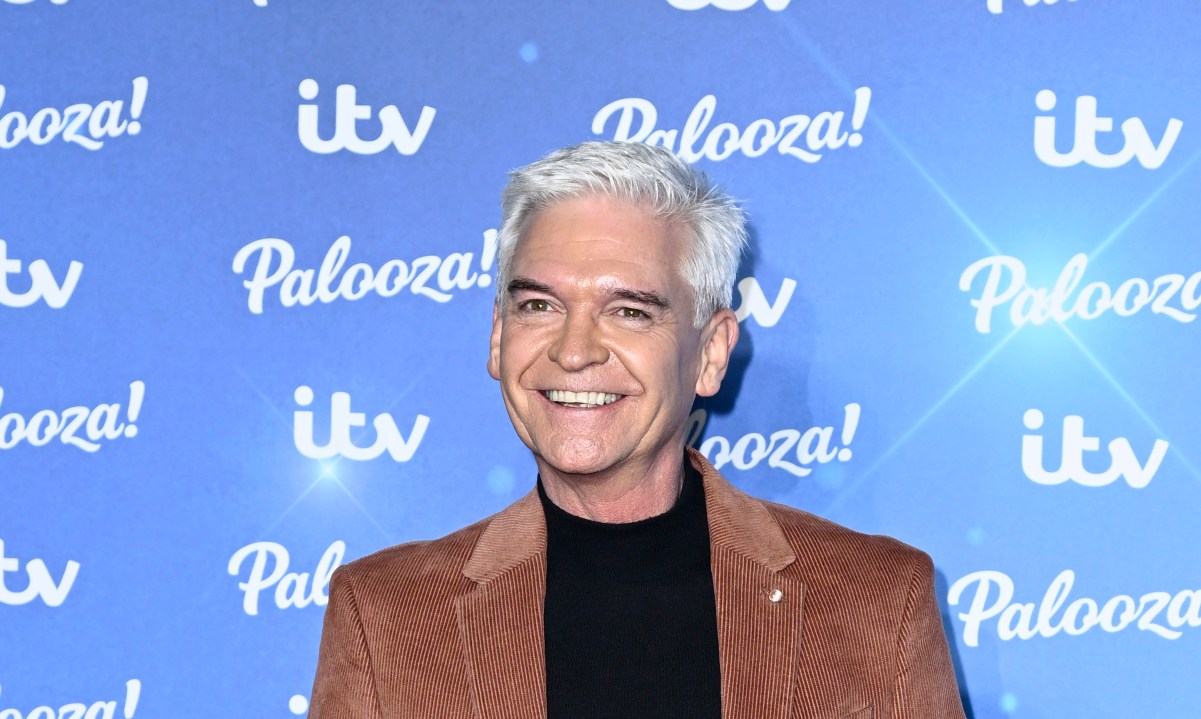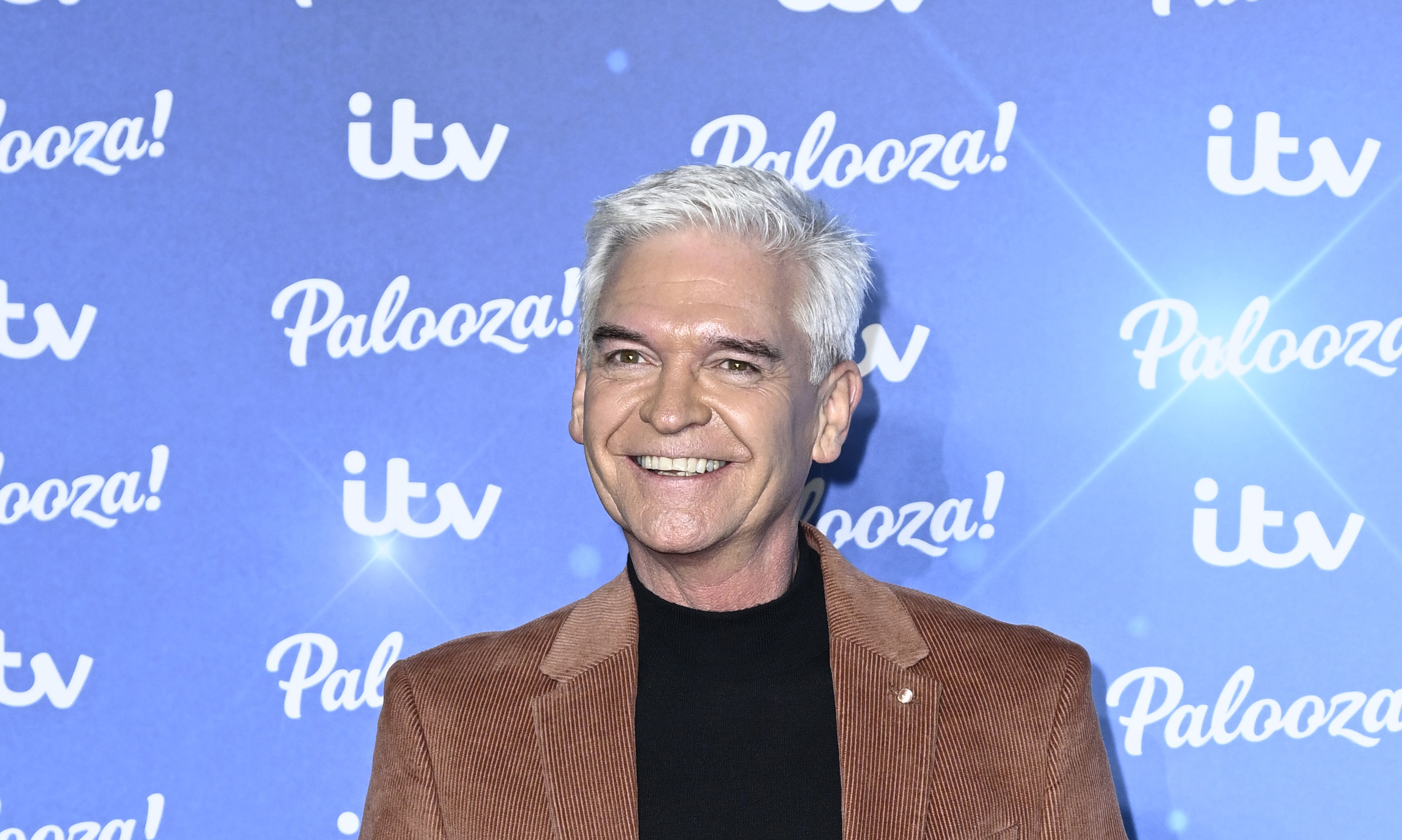On one level it’s all fluff and gossip, but the Phillip Schofield story actually raises some interesting questions about what remains of our idea of public morality.
Let’s start from the beginning. In early 2020, Schofield very publicly came out as gay. He posted a statement on social media that emphasised his gratitude for the loving support of his wife of 27 years and his two daughters. The strong implication was that he had not acted on his homosexual inclinations, that he was the utterly devoted family man, plunged into an impossible situation. ‘With the strength and support of my wife and daughters, I have been coming to terms with the fact that I am gay.’ It has been difficult to face up to this, he explained, but he took heart from the change in public attitudes: ‘My inner conflict contrasts with an outside world that has changed so very much for the better. Today, quite rightly, being gay is a reason to celebrate and be proud. Yes, I am feeling pain and confusion, but that comes only from the hurt that I am causing to my family.’ Again, the strong implication is that this hurt is due to the fact of his sexuality, not anything he has done to express that sexuality.
In a tearful on-air chat that same day, his co-host Holly Willoughby hugged him, praised his courage and asked if he was now looking for a partner. He gave the impression that such a thing had not occurred to him, so concerned was he with his family and his feelings of guilt at having let them down. He thus strengthened the implication that his behaviour had been beyond reproach. It seemed that his sexuality was a pure, inner thing, a matter of the spirit, unrelated to bodily desire of any sort. It was widely agreed that he was Very Brave.
It’s hard to unpick the offence he committed because our moral discourse is rather clogged up with sentimentality, evasion and political correctness
This week he admitted that, when he came out, he was in a ‘consensual on-off relationship’ with a considerably younger male colleague. He apologised for having lied about this to ITV, to his agent, to the press and above all to his wife and daughters. He resigned as an ITV presenter; clearly, he realised that this bit of truth-telling would not enhance his career.
It’s hard to unpick the offence he committed because our moral discourse is rather clogged up with sentimentality, evasion and political correctness. Imagine if the tearful chat with Holly on the sofa had gone a bit differently. She praises his courage and asks him if he is now looking for a partner. He replies, through his tears, that in fact he has recently fallen in love – and the lucky man is Dave, from props. Does this change things? Could his new love suddenly be affirmed? Could Dave join them on the sofa amid tears and hugs?
Surely not. It would have been too much to take, the news that Phil is now with Dave from props. But that’s hypocritical. Is there something wrong with a man falling in love with another man? Why is it fine, and indeed brave, for a married man to realise he is gay, but wrong for him to realise this through falling in love with a colleague?
Or let’s imagine the chat going another way. Holly asks Phil if he is looking for a new partner, and he says no, for now he’s enjoying the gay scene too much. Surely that would not have been deemed an acceptable answer. But that too is hypocritical. Is there something wrong with a gay man enjoying the gay scene? If there is, our admiration for people coming out should be qualified.
Or let’s imagine a different scenario. Schofield is straight. He tearfully admits that he has fallen in love with a young woman and is leaving his wife. She and his daughters have forgiven him, and he hopes that Holly and the public will too. This would not be OK. In the nicey-smiley touchy-feely world of daytime TV, a man cannot behave like that these days.
The story reveals a clash between two forces. Our culture contains a sentimental puritanism that demands that daytime TV hosts are squeaky clean, like sexless dolls. And it also requires shows of emotional openness, of rounded humanity, of virtuous victim-status. Schofield tried to combine the two by presenting himself as a devoted family man, painfully wrestling with his sexuality, bravely discovering his true self. But he had to present himself as a sanitised, asexual gay man. He had to perform a Disney version of gayness.
The story also tells us something about homosexuality’s unstable relationship with respectability. By coming out, Schofield was heightening his image as a cuddly sexless personality, laying claim to a sort of innocence. It sort of seemed that he was too nice and boyish to be interested in sex of any sort – for look, he was so sad about letting down his family whom he loved so much, and his amazing wider family too, whose hugs and understanding meant the world to him.
By contrast, a straight man would surely express his identity crisis by screwing some young totty at the office, the selfish toxic sod. Homosexuality, we seem to half-believe, is the more human, vulnerable, innocent form of sexuality, which is really more of a spiritual attitude, of courageous self-acceptance, than a selfish lust. Yes, it has a carnal side, but in a way that can be presented as just a bit of fun, nothing serious.
But homosexuals are humans, too, and so that innocent aura is frail. When it slips, and low motives come to light, the daggers come out sharp.








Comments